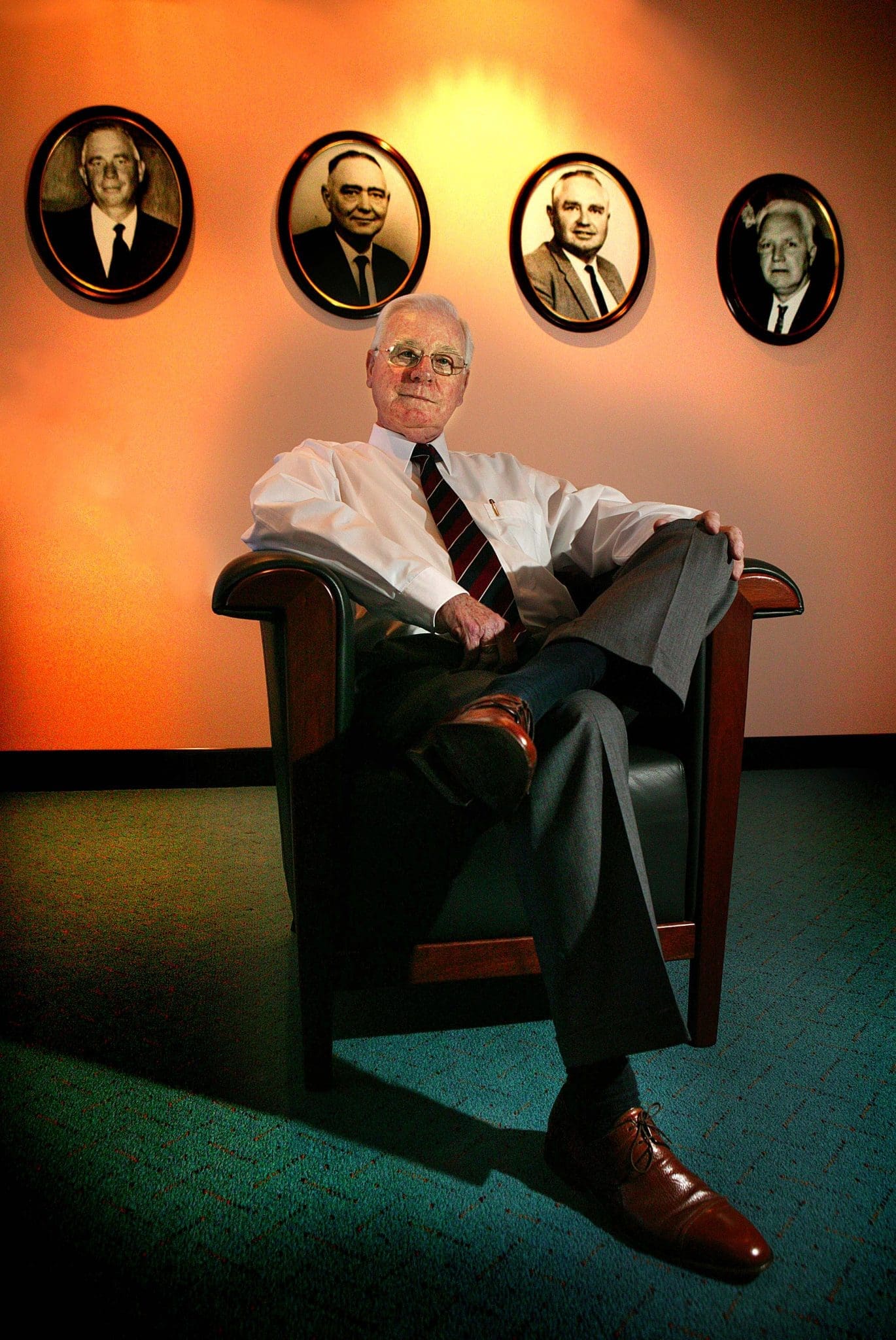WHILE this morning’s news that Australia’s second largest beef processor, Teys, will sell its 50 percent stake in the business to its US-based joint-venture partner Cargill has come as a surprise to many, it quickly becomes apparent that we should have seen this coming.
In some ways, Teys may be a victim of its own longevity.
 As an 80-year old family business founded by four brothers in a single Brisbane butcher shop in 1946, the ownership of today’s immense Teys business has fragmented into third and fourth generation family members, making it increasingly difficult to find common ground.
As an 80-year old family business founded by four brothers in a single Brisbane butcher shop in 1946, the ownership of today’s immense Teys business has fragmented into third and fourth generation family members, making it increasingly difficult to find common ground.
Some are still closely connected to the business (third and fourth generation family members are indeed working for the company) while others are more distant, and evidently would prefer to direct their stake elsewhere.
Three of the ‘second generation’ family members are still with us – former chairman Allan Teys (now 90), Gary Teys and Geoff Teys all worked for 40-50 years in the family business, and remain as shareholders.
Today, with 18 direct family shareholders and a bunch of next generation members on the horizon, the family’s stake in the business has become increasingly cumbersome. As part of that process, the Teys family sold its privately-held cattle grazing interests in western Queensland (including Baratria and Sedgeford) in 2022, after almost 30 years of ownership.

Former chairman Allan Teys, in front of pictures of the first generation of Teys brothers. Click on image for a larger view
Teys’ shareholders have probably made the smart choice to move on now, before the fragmentation process gets ever more messy. There’s plenty of evidence of successful Australian family-owned businesses self-destructing as generational change occurs like this – look at examples like the Smorgan and Hancock dynasties.
Speculation has circulated for years that the Teys family members might be seeking to sell their 50pc stake in the business. Names like Brazilian processor Minerva, which has made small investments in sheepmeat processing in Australia, have been connected with a possible investment in the business at least since 2022.
However the original agreement struck between Teys and Cargill as part of the joint venture back in in 2011 included clauses that gave Cargill first rights in any Teys family sale moves, as well as influence\approval over any third-party investor, Beef Central understands. At the time, many thought it implausible that Cargill would agree to a processing JV in Australia, with a third-party Brazilian investor with none of Teys’ local operating acumen.
Foreign ownership, competition scrutiny
Today’s sale deal, likely to be finalised around September or October, is still subject to approval from both the Foreign Investment Review Board and the Australian Competition and Consumer Commission. However under FIRB’s operating rules, Teys is already regarded as a ‘foreign owned’ company, despite the fact the level is only 50pc.
Equally, it is hard to see how the ACCC could find risk of dilution of competition for slaughter cattle, under the new ownership terms. The number of ‘entities’ in the slaughter cattle market remains exactly the same.
Today the Teys joint venture owns and operates a network of large, highly efficient beef processing plants in Queensland (Beenleigh, Biloela and Lakes Creek, near Rockhampton); Tamworth and Wagga Wagga (NSW) and Naracoorte (South Australia).
It also manages large lotfeeding businesses (see entry in Beef Central’s recent Top 25 Lotfeeders report) at Condamine on Queensland’s Darling Downs, Jindalee in the NSW Riverina, and Charlton in Victoria. The company also runs a large value adding facility near Brisbane; a state-of-the art aggregation, cold storage and distribution facility at the Port of Brisbane and a large distribution/wholesale facility in North America.
What does the new Cargill business look like?
So what does a Teys processing business look like under outright Cargill ownership later this year?
Very little is likely to change, is the simply answer.
The Cargill business culture closely aligns with that of the Teys family, and indeed some of the current and recent senior management within Teys operations ranks were indeed ‘inherited’ from the old Cargill Australia business that operated up to 2011. They include feedlots general manager Grant Garey and former Teys chief executive officer Andrew McPherson, who left the company in 2023.
Under the joint venture that has operated for the past 14 years, the entire day-to-day management – and much of the strategic management – was the responsibility of the Teys side of the equation. Cargill was very much a silent partner – to the extent that some beef stakeholders in Australia today may not have been aware that they already held a half-share of the business.
The Teys family and their senior management support were always seen as ‘hands-on’ managers with intimate knowledge of the Australian processing operating environment, and outwardly at least, it always appeared to be a happy marriage between the two JV partners.
Beef Central understands the new business will be kept as a separate entity, and will not function under the existing Cargill Australia (Trading) business.
Cargill started investing in Australian beef in the early 1990s, establishing Cargill Australia after purchasing the former local council-owned Tamworth processing business, and Wagga in NSW, plus the 19,000 head Jindalee feedlot in the Riverina. It operated the business independently and successfully until the merger with Teys in 2011.
Where Cargill may bring some additional grunt to the new Cargill Australia business in future is through its vast cold storage and distribution footprint in the US, its marketing network and its emphasis on value-adding. In April, Cargill opened a new high-tech food innovation centre in Singapore – one of three in Asia – designed to target the rapidly evolving market needs and consumer food preferences in Asia.
Regardless of what the future holds, the Teys family has made an incredible contribution to the progress of the Australian beef industry over the last century – for which all industry stakeholders should be grateful.
No processing company in the nation has operated with more integrity, honesty and perseverance in the tough times.
What struck Beef Central was just how ‘hands-on’ the senior management ranks were. For years, chairman and acting CEO Brad Teys was routinely found on frosty Tuesday mornings bidding on pens at the weekly Warwick cattle sale.
Now that’s walking-the-talk.
Who’s heading operations?
One of the key questions to be answered in coming months will be who heads-up the new business?
Simply parachuting a Cargill US executive into the role would be a fatal move, in Beef Central’s opinion. Such moves backfired badly when US-based ConAgra bought the Australia Meat Holdings business in the early 2000s.
While Australia is gradually morphing into a US-style grainfed beef production model, vast differences still exist in culture, geography, seasonal volatility and operating environments on either side of the Pacific. Cargill may well have already thought ahead and scoped-out talent to fill the top roles in Australia, post the Teys era. To do otherwise would certainly be a PR disaster, in the eyes of many in the broader Australian cattle community.
Cargill background
Set out below is a bit of history about Cargill, and its connection with Teys and Australian beef.
 Incorporated is an American multinational food corporation based in Minnesota, Cargill Inc was founded in 1865 by William Wallace Cargill. It is said to be the largest privately-held company in the United States in terms of income, with 2022 gross revenues reported at US$165 billion.
Incorporated is an American multinational food corporation based in Minnesota, Cargill Inc was founded in 1865 by William Wallace Cargill. It is said to be the largest privately-held company in the United States in terms of income, with 2022 gross revenues reported at US$165 billion.
Cargill is one of the world’s largest grain trading, purchasing and distributing businesses, responsible for about 25pc of all US grain exports. It holds major investments in other food commodities ranging from palm oil to meat processing, livestock and production of stockfeed; and producing food ingredients including starch and glucose syrup, vegetable oils and fats for application in processed foods and industrial use.
Cargill has operated in Australia since the 1960s, growing its base from oilseeds, grains and trading to integrated diversity in agriculture. It later became a local processor of canola and cottonseed. Its role in wheat changed when export powers vested by the Australian Government in AWB ended with deregulation in 2008. Cargill bought the trading arm of AWB, owned at that time by Agrium, and as described above, merged its beef activities with Teys Australia in 2011.
The company’s US beef processing business was ranked by Beef Central columnist Steve Kay’s annual Top 30 US Beef Packers in 2022 as the third largest in North America, behind only JBS and Tyson, accounting for some 23,000 head per day. The company is said to supply about 22pc of the US domestic meat market. All the eggs used in American McDonald’s restaurants pass through Cargill’s plants.
Cargill has remained a family-owned business, as the descendants of the founder (from the Cargill and MacMillan families) own more than 90pc of the stock.
Click here to view Beef Central’s original story on the formation of the Teys Cargill Joint Venture, published back in 2011.

Thanks Jon. Well researched and written piece. It shows how an (old) and wise head — who understands an industry’s history and culture — can summarise how a shift in its ownership might impact on its future. Well done.